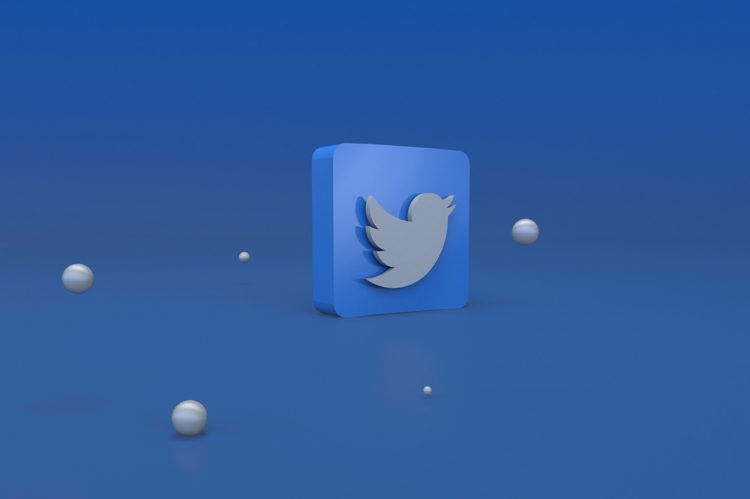Is the little blue bird chirping its last tweets? Twitter, under the new leadership of Owner/CEO Elon Musk since October 2022, is experiencing some growing pains. After a recent ultimatum to his employees that they must work “hardcore” (i.e. long hours for no extra compensation), many chose a three months severance package instead.
With millions of users worldwide, Twitter is a communication utility. NBC Technology Correspondent Jake Ward said of Twitter’s possible collapse: “This is not just some company, this is the way world leaders speak to each other, the way police get evacuation orders out.”
It’s also a platform that’s helped plenty of professionals launch and market their businesses, including in the real estate industry. Social media is one of the best innovations in direct marketing. When you advertise on a platform as wide-reaching as Twitter, you can reach clients you never would have in the physical realm.
Bill Gassett, a REALTOR® with RE/MAX Executive Realty in Massachusetts, who also writes regular advice columns for professionals and buyers, has used Twitter to louden his voice.
“I’ve been on for over 15 years now and I use it daily. I especially use it to disseminate blog content that I’m either writing for my own site or for others…I’ve built up quite a following over the years on the site, and part of that—any social media site—is mutual cooperation, collaboration with other people in the industry.”
Gassett points out another benefit of Twitter: networking with other professionals who use the platform. Musk’s management and the resulting mass resignations/terminations have complicated this. Suzanne Hawken, a REALTOR® with Homestead Real Estate and avid Twitter user, told RISMedia of how Twitter has benefitted her and how these disruptions have impacted her.
Hawken uses Twitter for “sourcing and following people and businesses that I believe will provide me with content which will be useful,” she said. “Learning about new tools, tactics and strategies along with gaining inside knowledge from others in my field are the most prevalent benefits I’ve experienced with Twitter.
“Over the past several weeks, since Elon Musk purchased , I have witnessed a vast change in how the content is being delivered–from a feed of people and their content I have come to appreciate, to one filled with blue check-marked individuals and businesses who are completely foreign to me and content I have little interest in consuming. Not to mention the number of parody accounts that are, at the very least, making a mockery of the entire ‘new and improved’ verified account system.”
Specific disruptions
Hawken refers to one of Musk’s most controversial moves, a reinvention of Twitter’s “blue check.” This previously functioned as an identity verification system—celebrities, politicians, businesses and reporters would be “verified” by having a blue checkmark next to their display name. Musk changed this to a $8-a-month subscription, where users could simply pay for a blue check.
Hawkens feels that Twitter, “needed some tuning…but not the $8 verified account kind of tuning.” Her advice? “Don’t demolish what’s not very broken!”
Indeed, some users took advantage of the new blue check system to impersonate brands, which yielded material consequences for those companies. User confidence in Twitter has understandably been undermined. Someone impersonating you or your brokerage could, for instance, promote false listings or announce your business is shutting its doors. Safeguards against this, so far, have been reactive rather than pre-emptive.
There’s also the matter of reaching an audience of potential clients. Musk’s policies have caused some to leave Twitter altogether. A recent dispute between Musk and Apple led to rumors of Twitter being removed from the App store, which would’ve severely limited new users’ ability to join. While this has seemingly been resolved, the troubles don’t end there. The European Union has warned Musk that unless he changes Twitter’s content moderation policies in compliance with the Digital Services Act, Twitter could be banned in EU member countries.
According to Musk himself, he plans to eventually find a new CEO to act in his stead. Indeed, Twitter users have recently given Musk a vote of no confidence. But there’s no word on who this new CEO will be, or if they will arrive fast enough to save the company. Some in the real industry are preparing for the worst. If Twitter does collapse, where should its users go?
Established alternatives:
- Facebook: As of Q3 2022, Facebook reports 2.96 billion users worldwide–that’s a lot of potential clients. You can discover leads through mutual friends or attract business with “promoted” posts, where a post will receive maximum exposure for a slight fee. You can also run conventional ads on the platform, which is useful since so many people are on it. If Twitter continues on a downslope, Facebook will be the most established alternative and ramping up your presence there would be smart.
- LinkedIn: Real estate is a referral-based business. What better platform to build a referral network than LinkedIn, which is designed to connect professionals with each other? It has evolved beyond that sole function, though. LinkedIn Influencers build up followers by sharing their outlooks or anecdotes, usually with some business tips or philosophies sprinkled in. Think of it like writing a newsletter, except the platform is provided for you. Plus, unlike Twitter, there’s no 280-character limit on LinkedIn.
- Instagram: Photos are a vital part of listings; a picture of a house is what catches buyers’ attention in online listings. Instagram allows you to share such photos whether in lasting posts, “stories” with a 24-hour lifespan, or reels (15 second long videos which you can edit together with video/audio of your choosing).
- YouTube: If a picture’s worth a thousand words, then a video’s value transcends calculation. YouTube is designed to share such videos. Virtual tours have taken off during the Covid-19 pandemic and a video going through a house is the simplest way to make one.
- TikTok: Randy Baruh, a New York broker with the Corcoran Group, has built up a following on Even if you’re not an agent or broker, you can appreciate the humor of his videos. TikTok is especially popular with Gen Z, which gives you a way to reach young buyers – including ones who may not have even been actively searching for a home in the first place.
Due to the publicized dysfunction at Twitter, smaller platforms are emerging and pitching themselves as an alternative. If Twitter is indeed on its last legs, then the void to fill it will be competitive. Here are some of these emerging Twitter alternatives and what each is offering to set itself apart from the real thing.
New frontiers:
- Mastodon: Currently touted as an alternative to Twitter, Mastodon boasts similar design and function–posts that the user follows are arranged in a timeline for them to view, like or share. There’s two main differences. For one, Mastodon allows for 500 character posts, almost twice as much as Twitter. Second, Mastodon is more decentralized and runs across different servers; at the moment, there are more than 7,500. Users can communicate across the servers, but if you’re looking to reach a broad range of leads or clients, this decentralization could be an impediment.
- CounterSocial: Another “Twitter clone” in the vein of Mastodon, CouterSocial’s main appeal is its zero-tolerance policy to “hostile nations, bot accounts and trolls.” Such problems have plagued Twitter in the past. While CounterSocial is small, if it can take the upsides of the platform without these negatives, it could develop into an attractive alternative. It’s not a bad idea to invest early in a promising market.
- Hive Social: Hive Social, which has seen a recent surge in sign-ups, has been described as a mix of Instagram and Twitter. A common complaint about Twitter is that its algorithm distorts users’ feeds. Hive Social aims to solve this problem by not relying on an algorithm; users will see posts from people they follow arranged in chronological order, and nothing else. If you’re marketing on Hive, you won’t be able to rely on tricking the algorithm, but on the simple strength of your brand. Before you sign up, security issues at Hive Social have been identified; the platform has currently shut down its servers while attempting to remedy this.
- Bluesky: The next project of Twitter founder Jack Dorsey is Bluesky. It’s currently still in the research phase, but the goal is to allow different social networks to interact, akin to how people can message each other across different email servers. If Bluesky lives up to this promise, it could be a useful tool for streamlining your social media operation and reaching more leads.
Follow RISMedia on Twitter (while you can) at @RISMediaUpdates.











